If you've been hearing your friends talk about the "Mom's Multiverse" lately, don't question their quality; this isn't a tirade about the overplayed multiverse, it's a discussion about the movie "Everything Everywhere All at Once" starring Michelle Yeoh.
Compared to the double success of word of mouth and box office in Europe and America, this movie, also translated as "Ma's Multiverse", has received highly polarized reviews in China, in addition to the high popularity of "out of the circle".
Those who like it praise it for being creatively pie-in-the-sky, wrapping the most universal of emotions in a gorgeous shell; those who hate it find the movie confusingly paced, full of cheesy jokes that still end up being only about the clichéd reconciliation of an East Asian family. But like the movie or not, all must have been impressed by one of the fight scenes.
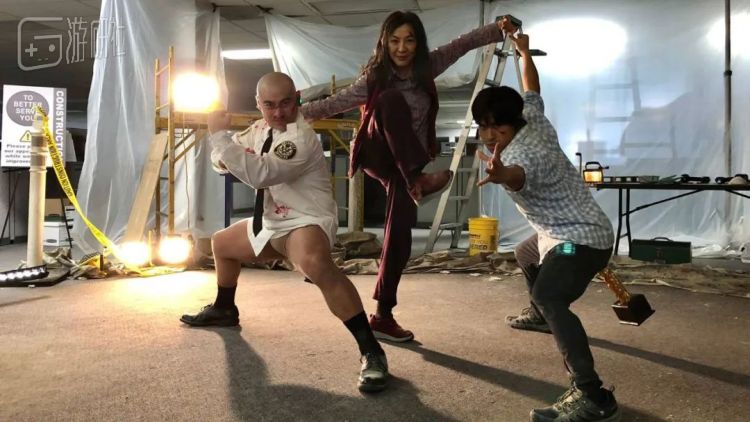
The two Asian villains try to get their chrysanthemums to "merge" with the strangely shaped trophy in order to meet the crossover conditions for a "small probability event", and one of them sticks a trophy in with Michelle Yeoh in a bizarre kung fu duel. Putting aside the trophies dangling from their butts, the martial arts skills of these two actors are clear for all to see.
In fact, the two actors who doubled as the film's martial arts directors didn't come from martial arts disciplines. A few years ago they were grassroots bloggers who shot funny videos on the youtube, and a dozen years ago they were laymen who knew nothing about martial arts.
1
In 2012, a channel called MartialClub (martial arts school) uploaded their first video.
Two young men fighting over a piece of ice cream cake is what this video is all about, and the close-up brand logos and exaggerated character motivations all make the video look like a commercial. But in reality, it's just a parody of their traditional TV commercials, and it's their fights that they really want to show off.
And the stars of the film, Andy Le and Brian Le, who you'll recognize from watching, are the ones who officially started their journey as video bloggers with this little clip.
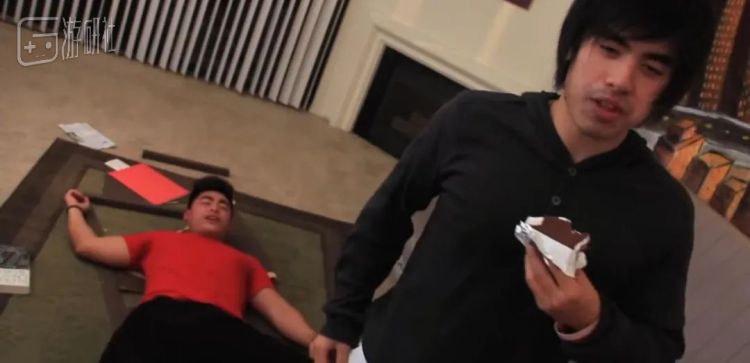
Right from the start, there is no shortage of quality fights in MartialClub's videos. Whether it's a single person doing difficult training moves or multiple people sparring at high speed, it shows their team's notable martial arts skills.
![]()
Some of the strongly stylized shorts also show their obvious homage to Shaw's films of the last century through the yellowing filters, frequent large close-ups and fist-pumping post-production sound effects. Even in other videos where the filters are dropped, their parody of classic kung fu Hong Kong films can be seen in the clearly dismantled stances of each punch and kick.
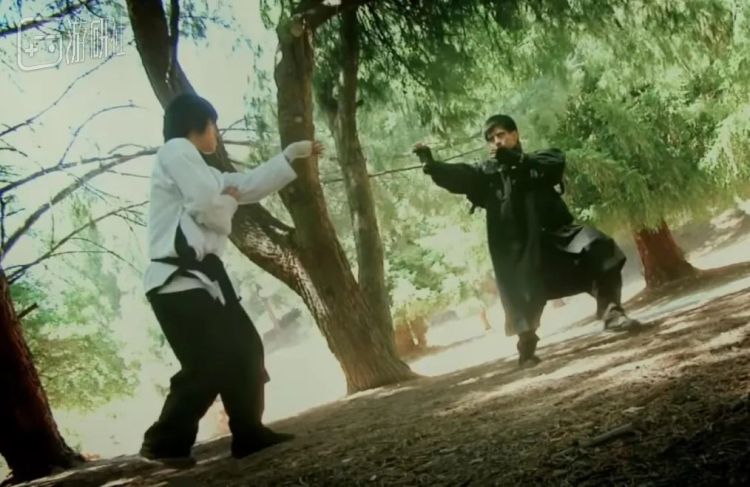
The content of the MartialClub channel during this period was more like a record and showcase of themselves. Most of the videos' titles and covers only contained a simple statement of the video's content, except for the eye-catching Pose and the Chinese name of the move, and were still at the stage of "really trying to teach the audience".
It's just that the genre is destined to have a small audience and the airplay never took off much after a few years. So they went along with the general trend and rightfully made the whole thing live.
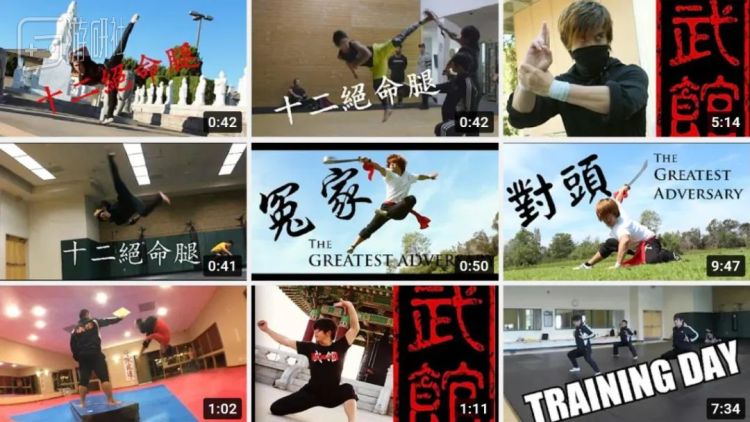
MartialClub itself is a team of a few young people, so they didn't have much trouble figuring out how to combine pop culture and Chinese kung fu. It soon relied on the addition of ninjas, movies, animation, and games for a high number of views that far exceeded the previous videos.
A roadie obsessed with Pokémon GO tries to force his way into a family's backyard to catch a Supermon and gets into a fight; a ninja from the world of Naruto messes with the ninja base of Mortal Kombat and gets into a fight; an "ordinary" person forced into a desperate situation by The Ghost Nun and the Ghost Nun similarly get into a The "normal" people who are forced into a desperate situation by "Ghost Nun" also fight with the Ghost Nun.
But no matter what the costume or identity, their fights are still proper Chinese kung fu, only with more props and the funny elements that audiences love to see.
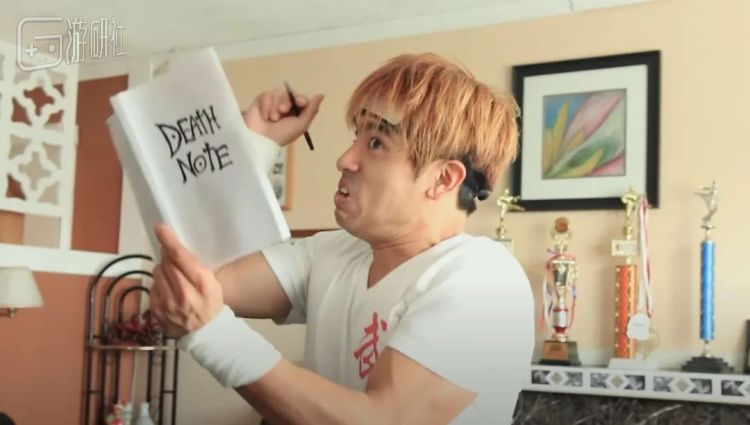
Before "Everything Everywhere All at Once", People were most familiar with their work from a short film with the keywords "Chinese Kung Fu" and "The Avengers".
They recreated the movie's superheroes in a few skimpy COS suits and re-enacted the battle scenes with Chinese kung fu, but the fights were still good enough, even if they were cheap.
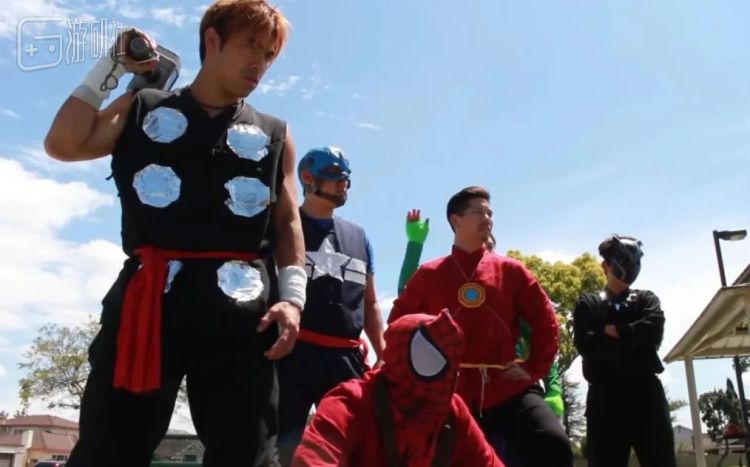
Despite the fact that few people in the country knew these uncharacteristic faces at the time, the film received a good amount of airtime after it was carried to various platforms, with many people describing it as "Jackie Chan style comic book".
Ever since MartialClub started venturing into the realm of funny, it's really been obvious that they've been imitating Jackie Chan's "Ikea God of War" style. This rather prop-intensive homage, which simply began as a way to get further down the video blogging road, has unwittingly led them to touch the door of another realm.
2
"Never underestimate your audience" is probably the first lesson MartialClub learned upon entering the film industry.
By chance, Jackie Chan member Zheng Jizong saw a video of MartialClub on the youtube. The renowned martial arts director felt that the youngsters had potential and their style matched Jackie Chan's, so he invited them to participate in one of Jackie Chan's PSA projects.
Andy Le was thus invited to participate in the choreography of the commercial, suggesting many ideas derived from Jackie Chan's past films, and was also appreciated by Jackie Chan. Growing up with kung fu Hong Kong movies, they have always idolized Jackie Chan, Jet Li, Donnie Yen and other kung fu stars, studying these movies day and night without ever expecting to get involved in them. So after working with his idols and receiving compliments, Andy even said outright that he had a checkmark on his bucket list.
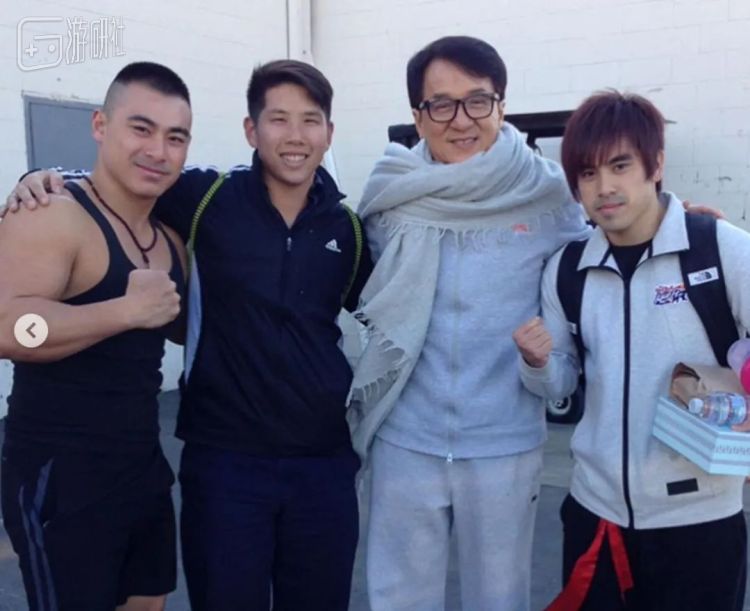
At this point, though, MartialClub, still hadn't set foot in the film world, knocking on a small window at best - until another pair of their audience members called in as well.
This time they were contacted by the directors, known as "The Daniels Brothers", Daniel Kwan and Daniel Schnatter. They had already made a name for themselves with "The Swiss Army Knife Man" and were working on their next film.
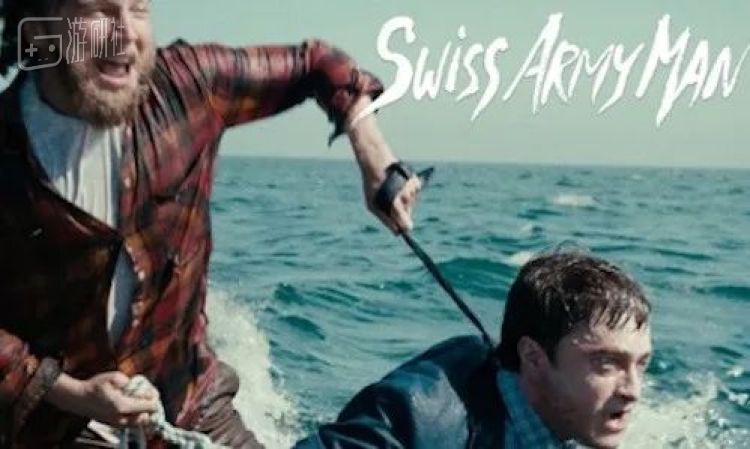
The director told them the film would be a lot of "Fast and Furious"-style quality fights on top of their own wacky, crazy inherent style, restoring the great kung fu scenes of the Hong Kong film era, and wanted to invite them in.
When MartialClub received the offer, they felt that the Daniels brothers' style would also be a good fit for their kung fu comedy, and after briefly thinking about it, they agreed to star and serve as martial arts directors in the film, which was just recently released as Instant All Universe.
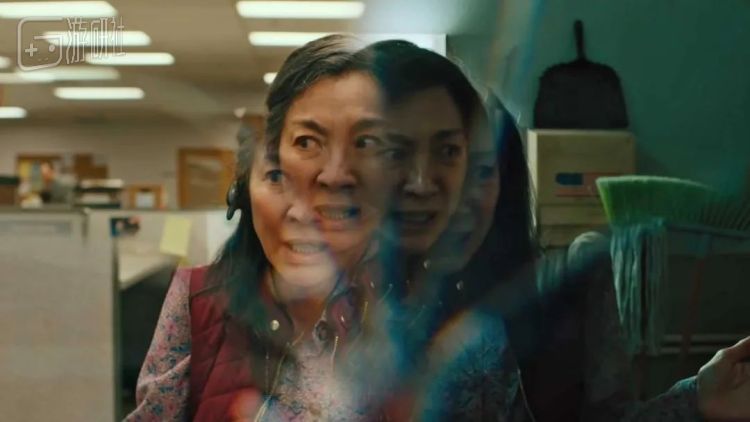
In hindsight, the Daniels brothers approached MartialClub to join the film, more or less due to cost concerns about the film being stretched thin - after all, the film's post-production relied on a team of five people, including the director, to grind it out slowly. But in terms of results, the collaboration was undoubtedly a success.
The film's quirky style is filled with fight sequences, including a number of famous scenes that pay homage to classic films, and the use of props in many of the fights that have led critics to call them "too Jackie Chan," including the sequence that revolves around a trophy fight, all under the direction of MartialClub.
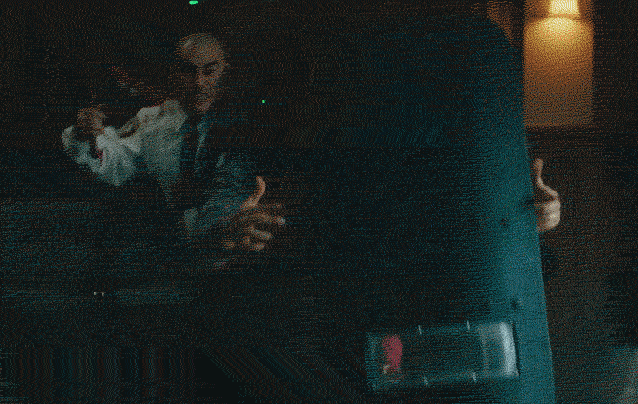
It was after working on this film that MartialClub's ability in film was finally seen and more producers began to approach them to work with them, including an offer from Brad Allan, another former member of the Singing Family, and MartialClub became an up-and-coming martial arts team in Hollywood.
Even veteran kung fu actress Michelle Yeoh, who has worked with them many times, has nothing but praise for these young men who have been mentoring her. That's why her first reaction was surprise when she learned of their "master background" - they had hardly received any martial arts training, but had taught themselves by watching movies and videos to get to where they are today.
3
Born in a Vietnamese community in California, the Le brothers Andy Le and Brian Le grew up watching a lot of classic Hong Kong movies with their parents and had a kung fu complex planted in their hearts early on.
But for parents who fled to the United States during the Vietnam War, "secure and comfortable" jobs such as doctors, lawyers and accountants were the ideal, just as they were for many Asian parents.
So even though the two brothers had shown a keen interest in Chinese kung fu from a young age, their parents only let them study formally for four months before "pulling them back on track". For a long time after that, apart from watching kung fu movies, the only way they could "train" was to pull the mattress onto the floor and drop it over and over again in various positions.
It wasn't until 2007 that Andy Le, who was already in high school, met Daniel Ma at the gym, a "cool geek" who was practicing kung fu alone in the corner, and Andy decided to talk to him and ask him to teach him kung fu, and then he got his brother Brian together and started MartialClub, which hadn't even started yet. The MartialClub, which hadn't even started making videos yet, was formed.
Unlike the Lai brothers, Daniel Ma is not a pure grassroots person with no foundation. According to him, he had studied "Northern Shaolin Kung Fu" and "Seven Star Tai Chi" for many years, so at the beginning, he also instructed the two brothers in kung fu. But for most of the time, the main way for the brothers to learn martial arts is still self-learning.
Since they are not limited to one move and one genre, they use the vast amount of kung fu movies and video resources as reference, studying the moves "move by move, frame by frame, angle by angle" and then trying to copy them, every video blogger is their master, every movie move is their secret.
So it's not surprising to see the "trying to teach the viewer" style of their early videos. They believed that "with the internet you can learn almost anything you want, including kung fu", and they did go from watching, to imitating, to mastering, and they did.
More importantly, they also understand that just because they can learn doesn't mean they can master. After building a solid foundation with self-study, they often visit kung fu masters they can contact to find room for improvement from the "academics". In addition to traveling to martial arts schools all over North America, this included a trip to China to study at Foshan and Shaolin Temple.
It was during this process that they met many people in the martial arts industry who were overseas. Many of them have dealt with film companies as martial arts consultants or instructors, such as Ouyang Tze Chung, the Wing Chun technical consultant for Ip Man.
It would be logical for them to use this to break into the movie business, but it wasn't until Jackie's class saw them by chance that they started dealing with movies. Or maybe the chance that Andy speaks of is an echo of their past behavior that they just don't know about themselves.
4
More than a decade after relearning martial arts, the Lai brothers finally became the film actors they had aspired to be since childhood. Seeing them become so successful, their parents, who were against it back then, finally approved of this path they had chosen for themselves. Even after Andy joked with his mother about not being an actor and becoming an accountant instead, she would still firmly object to his sudden abandonment of this great career.
MartialClub is on the rise in Hollywood and several of the key members are very optimistic about the future. In addition to the several projects they are working on, they are planning to lead a film of their own in the future, which is probably something they could never have imagined when they first started the channel.
Ten years is not a long or short time, but they have managed to stumble their way to this point. The creators' exploration of existentialism in Transient Omniverse, which made them famous, might just as well be used to sum up their experiences along the way.
It is the countless choices of the past that have made us who we are, and if life has no meaning, give it meaning with "plastic eyes". Creating a path to the universe we truly desire is the most basic ability we have, regardless of the dire circumstances we find ourselves in.
Even if you become a stone you can take another step for what is in your heart, so there is nothing wrong with just being a stone.